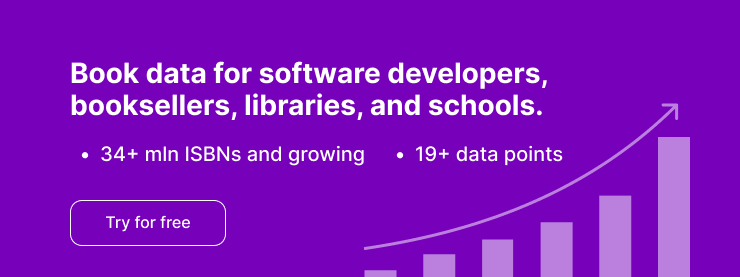
The book industry has been undergoing significant changes over the past few years, with advancements in technology and changes in consumer preferences affecting the way books are produced, sold, and read. One area where technology is having a significant impact is the collection, analysis, and application of book data. In particular, AI and machine learning are playing an increasingly important role in the book industry, enabling publishers, booksellers, and marketers to gain insights into consumer behavior, improve their marketing strategies, and make more informed decisions about the books they produce and sell.
In this article, we will explore the current state of book data in the industry, the potential of AI and machine learning in book data analysis, and the opportunities and challenges associated with these technologies. By examining the ways in which AI and machine learning are transforming the book industry, we can gain a better understanding of how these technologies may continue to shape the future of books and reading.
- The Current State of Book Data in the Industry
- The Potential Benefits of AI for the Book Industry
- Potential Challenges Related to the AI in the Book Industry
- Examples of AI Usage in the Book Industry
- Will AI Replace People?
The Current State of Book Data in the Industry
Book metadata has always been a critical component of the book industry, providing insights into consumer preferences, sales trends, and reader demographics. There’re all sorts of data in the book industry that can be useful for AI, from various statistical data related to reading and sales figures to specific data on the book content (the range of topics is endless, depending on the interest). This data is used by publishers to inform their publishing decisions, book retailers to develop sales strategies, and marketers to target specific audiences.
Some of the key types of book data that are collected and used in the industry include:
- Sales figures: Data on book sales is essential for understanding which books are popular and which are not. This information can be used to inform publishing decisions, such as which authors to sign and which genres to focus on.
- Reader demographics: Knowing who is reading books is important for publishers and marketers. This data can help them understand which audiences to target with their books and how to promote them effectively.
- Consumer reviews: User-generated reviews on sites like Amazon and Goodreads provide valuable feedback on books, helping readers make purchasing decisions and providing publishers with insights into what readers like and don’t like.
Data Constraints and Limitations
While book data on literary works, readers, and their reading habits are important, there are limitations to current data collection and analysis methods in the book industry.
- The implementation of AI tools is impossible without the preliminary collection of data. At the moment, library data is being collected by libraries, yet, it’s not always freely available and accessible. The same can be said about data collected by other industry players. However, for AI technology to reveal its full potential, collaboration among bookstores, publishers, authors, and readers is essential. To take advantage of the technology, we should ideally have access to a diverse set of data, including not only the major data points such as the number of books published, sold, and read, their themes, authors, etc. but also other things such as settings, time periods, character personalities, and even the languages they speak, among other things—the more information, the better. All this information should be collected and made accessible. The possibility to cross-reference with other data sources (e.g., educational or governmental resources that collect their own statistical data) can also help book industry players create long-term strategies.
- The quality and the quantity of available data come as the next essential condition for successful AI implementation. The more high-quality data is available, the higher the chances are that AI will produce good results. For example, sales figures may not always be accurate or up-to-date, and reader demographics may be incomplete or imprecise.
- Additionally, collecting and analyzing book data can be time-consuming and expensive, making it difficult for smaller publishers and retailers to compete with larger players.
The Potential Benefits of AI for the Book Industry
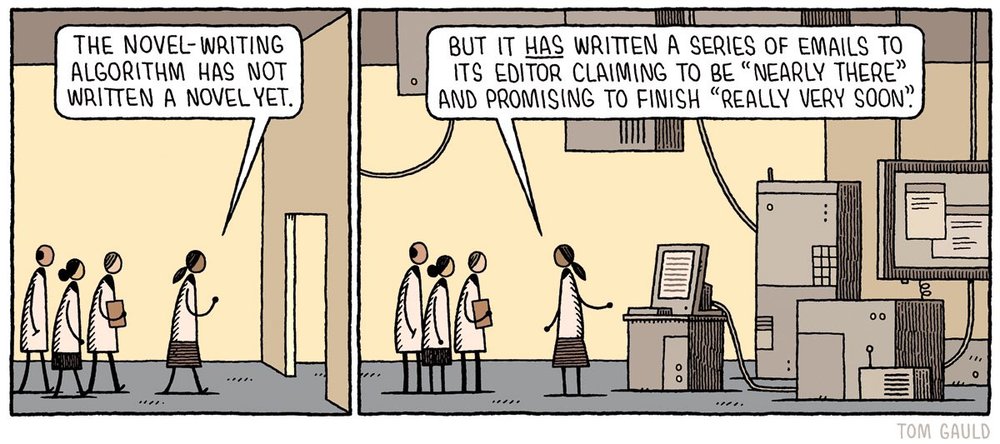 Image by Tom Gauld
Image by Tom Gauld
Yet, regardless of the existing problems and limitations, AI’s been making its way into the book industry and changing the way it works, from creating and publishing to bookselling. It’s slowly but inevitably affecting the way books are written, produced, published, distributed, and marketed.
AI and machine learning technologies offer new opportunities to collect, analyze, and apply book data in more effective and efficient ways. These technologies use algorithms and data models to identify patterns and make predictions, helping industry players to better understand their customers and make more informed decisions.
According to the joint research related to the connection between publishing and AI by Frankfurter Buchmesse and Gould Finch— The Future Impact of Artificial Intelligence on The Publishing Industry—marketing and distribution departments are the primary sectors where AI is implemented. Next come the editorial and production teams, followed by the administration and press departments. Here’re other sectors where AI can be used in the book industry:
- Automated text analysis
- Content personalization and management
- Content translations
- Automated formatting
- SEO
- Publishing contracts and rights
- Text auto-tagging
- Chatbots
- Email marketing
Artificial Intelligence and the Book Industry, a white paper created as part of the Littérature québécoise mobile project, funded by a Partnership Grant from the Social Sciences and Humanities Research Council of Canada, singled out the following potential sectors where AI and ML can be used to its best advantage:
Predicting Reader Expectations
AI can cope with the task of future trend identification way better than customary business analysis tools. It can help discover business prospects. From topics and stories that are likely to resonate with readers (based on real-time engagement and consumption data, social media trends, search engine data, etc.) to the possibility of analyzing and outlining literary trends that do not yet exist, AI can also be used to predict the topics that will be most popular in the future. We can use AI to find correlations in readers’ tastes to offer them a read that combines both the love for, say, Spain, crime stories, and birdwatching. Or we can analyze readers’ wants and find the topic that’s beginning to become popular—to use the time and create a read on the theme (e.g., ecology fiction).

Broadening the Horizons of Creation
With GPT-4 being here, coherent text generation is a reality. And even if these texts lack in many ways (so far) and will hardly ever aspire to be literary masterpieces, the option to generate texts carries great potential for the book industry. Undoubtedly, AI will be used as a writing aid by writers; some are already using it. Here is an interesting example: poet David Jhave Johnston used AI to createReRites—his limited edition boxset of 12 poetry books generated by computer and then edited by him. Other AI possibilities include the development of personified creative aids that imitate an author’s “voice,” making Siri, Alexa, or Google Assistant speak like your favorite character, or making a recipe from a cookbook appear on a connected refrigerator screen through the cross-referencing of data on books, open databases, and data from the IoT (Internet of Things). AI is also being used to create new forms of written content that provide an immersive reading experience, such as interactive books and VR-enabled novels. The list is endless.
Support for Publishers
From the prospect of improving a self-publication process to the possibility of automating the transformation of manuscripts into audiobooks, AI has a lot to offer to the publishing sector. We’ll be giving more examples of what’s already been done in the publishing sphere later on in the Examples of AI Usage section.

Optimized Promotion and Distribution
The potential impact of AI on promotion (representation and advertising) and distribution (storage and delivery) is great. We’ll be giving more examples later, too, but we’d like to highlight the following: provided that enough high-quality, accurate data is collected and made accessible, promotion and marketing with AI can be much more successful.
Improving Access to Books
For example, booksellers and librarians will be able to navigate their catalogs to cater to the specific needs and wishes of potential readers. An AI-driven system can make it happen, provided that book referencing is done correctly. Another possibility is to refine and organize knowledge about readers for all book industry players, libraries, and booksellers in the first place.
Potential Challenges Related to the AI in the Book Industry
AI and machine learning offer a range of potential benefits for the book industry, including improved efficiency, greater accuracy, and enhanced customer experiences. However, there are also challenges and ethical considerations associated with these technologies.
Finances
According to Frankfurter Buchmesse and Gould Finch’s research, the financial aspect is the major problem in AI implementation for many publishers. There’s no guarantee that a costly investment into complicated technology development and employee training will bring a return. Therefore, many choose not to take risks.

Data Privacy
One of the biggest challenges is privacy. Collecting and analyzing personal data raises concerns about data privacy and security among publishers and all book industry players.
Undertrained Algorithms
The most commonly used algorithms in the book industry refer to Natural Language Processing (NLP) and image recognition (e.g., book cover analysis). Yet, as we’re talking about the cases where computer systems learn under supervision using provided data, there is the potential for biases to be introduced into AI and machine learning algorithms, which in turn, could negatively affect certain groups of readers or authors.
Inaccurate Data
As we’ve already mentioned, the quality of data collected is essential. Yet, as it’s being collected by various parties, there can be inconsistencies, inaccuracies, and cases of lacking data. Besides, as there’s no one established protocol for data collection, there’s a problem with data compatibility in cases when AI uses several data sources.
Other
Apart from the above-mentioned ones, there’re a few other challenges to take into consideration:
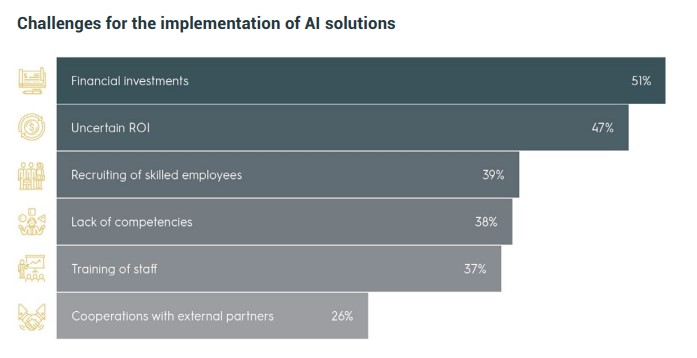
To address these challenges, industry players are working to maximize the potential of AI and machine learning in book data analysis while also being mindful of the ethical considerations involved. For example, some publishers are using AI and machine learning to identify potential biases in their own data and take steps to address them. Others are investing in training and education programs to help employees develop the skills they need to work effectively with these technologies.
Examples of AI Usage in the Book Industry
Examples of how AI and machine learning are already being used in the book industry include:
Predictive Analytics
AI and machine learning can be used to analyze sales data and predict which books are likely to be popular in the future. This information can be used by publishers to make decisions about which books to publish and how to market them. Similarly, these technologies can be used to develop personalized book recommendations for individual readers based on their reading history and preferences. Companies like Hachette Book Group and HarperCollins have used AI and machine learning to analyze sales data and predict which books are likely to be successful. According to the chief executive of Pearson, one of the largest educational materials and learning technologies providers, publisher, and assessment services, “AI has played an important role across our product portfolio for many years” and is currently using AI in its workforce skills division, where large language models are used to develop predictive algorithms. The goal is to predict trends in demand for skills and occupations globally and to be able to recommend career pathways.
Manuscript Selection
To address the issue of selecting the most promising manuscripts from the avalanche of appearing ones, some companies have turned to AI. One such company is QualiFiction, which has developed an AI-powered tool that analyzes manuscripts and predicts their commercial success. QualiFiction’s tool uses natural language processing (NLP) algorithms to analyze various aspects of a manuscript, such as plot, character development, and writing style. Another company utilizing AI for manuscript selection is Booxby. It used machine learning algorithms to analyze manuscripts and provide feedback to authors. Presently, we found information about the activity of both companies in 2016–2017, but it seems that the Booxby domain expired while the software program LiSA, developed by QualiFiction, is still available (in German).
Personalized Book Recommendations
Booksellers, e-commerce book businesses, educational and non-profit organizations, and all sorts of book-related apps can benefit from using AI to provide personalized book recommendations. Take websites like Amazon and Goodreads, for instance. Both use algorithms to recommend books to individual users based on their reading history and preferences.
- Amazon offers personalized product recommendations based on AI and, by doing so, satisfies customers by accurately anticipating their needs and creating recommendations that more closely align with what the user is likely to buy. Here’s the data used by Amazon to provide such recommendations: the buying behavior of customers, products in the cart, items viewed, and most searched items.
- HarperCollins also enabled AI to help their clients by providing personalized recommendations. The tool was called BookGenie and was accessible via Facebook in 2017. By clicking the “Message” button, users could communicate with a chatbot and get personalized recommendations on the HarperCollins titles according to their taste. The chat doesn’t seem to be available any longer.
- Platforms like BookBub use machine learning to curate book recommendations for users based on their past purchases and reading habits. The company’s website uses machine learning algorithms to analyze a reader’s preferences and recommend books that match those preferences. The algorithms also take into account factors such as genre, author, and price.
Here’s the data from Statistics showing the major areas where news publishers prefer to use AI:
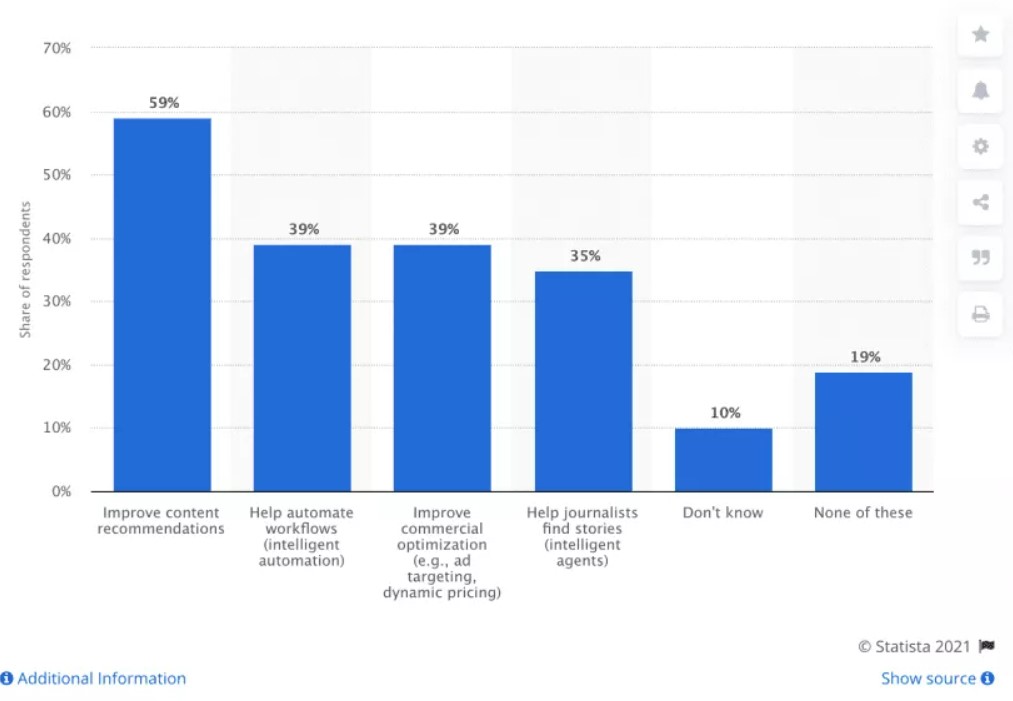
Increased Discoverability via AI-Driven Book Data Management
Discoverability is essential for any business, and bookselling is not an exception. How to make a book visible to readers, easily accessible, and popular? How to make it so popular that it becomes a bestseller? These are the challenges publishers and booksellers have to face with regard to discoverability. Over the years, there have been a few specific factors that proved effective in making any book more discoverable:
- Thorough ONIX book metadata completion
- Proper title (both in substance and formatting)
- BISAC categorization
- The use of long-tail keywords
- Book reviews and ratings
- Social media presence
- Understanding and usage of comp titles
- Historic customer behavior data
- Cover art and its digital representation online
It may sound easy; however, the catch is in the amount of data. There’s really a lot of data to be covered and few resources available. Even large publishing companies have to outsource such tasks, some of them to AI, as it can do the job fast and exceptionally well.
With the help of AI, massive amounts of book data can be analyzed, classified, and put to use. For example, singling out precise keywords with AI can help reach a bigger audience. Before AI, such tasks have been done by hand, but now, with AI, publishers can analyze the texts and find the major topics and keywords faster and more precisely and effectively, cross-reference this information with reviews, social media response, consumer behavior metrics, and find ways to make their books not only discoverable but sought-after. The same goes for proper BISAC categorization of books. With the help of AI, choosing new and more accurate BISAC codes has stopped being the problem.
Here, we come back to the two major challenges on the way of AI improving the book discoverability for any book industry player, be it a bookseller, a publisher, or a library: the development cost and data accuracy.

AI relies heavily on the analysis of data it gets. In the book industry, there’s so much information to be analyzed, and the better the quality of data is, the better the results you get. While major book industry players can have their own data science departments or resources to work with such large databases as Bowker, other book industry actors, such as local libraries, e-commerce booksellers, non-profit organizations, etc., choose to work with such databases as ISBNdb. It collects data from libraries, publishers, merchants, and other sources to compile a vast collection of unique and highly accurate book data searchable by ISBN, title, author, or publisher. With 34+ million book records, ISBNdb can be used as a valuable source of book data for various AI solutions.
Content Creation and Management
AI is also used to help create and manage content for digital media. Such large resources as Forbes, The Washington Post, Bloomberg, and The New York Times have AI-powered tools that help them with content creation and management, publishing, and other things. Bertie, an AI-powered CMS, helps Forbes organize and manage work for the in-house newsroom of journalists, expert contributor networks, and partners. The Washington Post relies on Heliograf, their in-house automated storytelling technology created for hyperlocal coverage and which first debuted during the Rio Olympics. Bloomberg relies on Cyborg; it has also recently released BloombergGPTTM, “a new large-scale generative artificial intelligence (AI) model. This large language model (LLM) has been specifically trained on a wide range of financial data to support a diverse set of natural language processing (NLP) tasks within the financial industry.” The New York Times has implemented Perspective, anti-abuse software that detects and labels abusive comments accordingly. Reuters, the Associated Press, and The Guardian also use some sort of an AI-based CMS to cover a range of tasks in their newsrooms. Bookwire, Frankfurt-based publishing technology and distribution company, uses a set of tools to automate pricing and in-book advertising. It has also recently integrated ChatGPT as a beta version into its Bookwire OS software.
Publishers and Educational Resources AI Usage Examples
Here are other examples of how AI is being used by some publishers and educational resources in the book industry:
![]() Barnes & Noble has been using AI to help personalize the book-buying experience for customers. The company’s website uses AI algorithms to recommend books based on a customer’s previous purchases or browsing history.
Barnes & Noble has been using AI to help personalize the book-buying experience for customers. The company’s website uses AI algorithms to recommend books based on a customer’s previous purchases or browsing history.
![]() Penguin Random House has been using AI to help with book marketing and distribution.
Penguin Random House has been using AI to help with book marketing and distribution.
![]() Pearson uses AI to help personalize learning experiences for students. The company’s AI-powered platform, Aida Calculus, uses machine learning algorithms to analyze student data and provide personalized learning materials and activities recommendations.
Pearson uses AI to help personalize learning experiences for students. The company’s AI-powered platform, Aida Calculus, uses machine learning algorithms to analyze student data and provide personalized learning materials and activities recommendations.
![]() McGraw Hill uses AI to personalize learning experiences in its ALEKS Program.
McGraw Hill uses AI to personalize learning experiences in its ALEKS Program.
![]() Scribd, a subscription-based platform that provides access to eBooks, audiobooks, and other types of digital content, uses its extensive data and ML to change the way we read and to help personalize content recommendations for its users.
Scribd, a subscription-based platform that provides access to eBooks, audiobooks, and other types of digital content, uses its extensive data and ML to change the way we read and to help personalize content recommendations for its users.
![]() Springer Nature has been using AI to help with the peer review process, and now it has launched a new AI-led service to support research decision-makers. Besides, it has just published a book that was generated by an algorithm using machine learning. The title of the book is Lithium-Ion Batteries: A Machine-Generated Summary of Current Research, authored by Beta Writer, an algorithm built by scientists at Germany’s Goethe University.
Springer Nature has been using AI to help with the peer review process, and now it has launched a new AI-led service to support research decision-makers. Besides, it has just published a book that was generated by an algorithm using machine learning. The title of the book is Lithium-Ion Batteries: A Machine-Generated Summary of Current Research, authored by Beta Writer, an algorithm built by scientists at Germany’s Goethe University.
![]() Houghton Mifflin Harcourt uses AI to personalize the learning process. The company has acquired several AI-powered learning solutions with the aim of helping students learn and providing personalized recommendations for instructional materials and activities.
Houghton Mifflin Harcourt uses AI to personalize the learning process. The company has acquired several AI-powered learning solutions with the aim of helping students learn and providing personalized recommendations for instructional materials and activities.
Bookseller AI Usage Examples
Though private book resellers have fewer resources, some of them are also using AI and ML to improve business processes. Most commonly, they tend to employ AI to help with pricing and inventory management and to provide personalized book recommendations. Here’re a few examples:
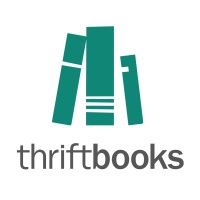 ThriftBooks has applied generative AI and data warehousing to the bookselling process. The company’s algorithms analyze sales data and market trends to determine which used books will be sold and the best prices for them; they also provide book recommendations based on the data they generate and analyze.
ThriftBooks has applied generative AI and data warehousing to the bookselling process. The company’s algorithms analyze sales data and market trends to determine which used books will be sold and the best prices for them; they also provide book recommendations based on the data they generate and analyze.
![]() Book price comparison platforms such as BookScouter use special algorithms to analyze pricing data from a variety of sources to help customers find the best deals on used books.
Book price comparison platforms such as BookScouter use special algorithms to analyze pricing data from a variety of sources to help customers find the best deals on used books.
Content Translation
AI technology can be utilized for language translation, which is crucial for publishers whose content caters to a global audience or those aiming to expand their readership. While tools such as Google Translate may not meet the needs and standards of journalism and professional writing, some AI-supported services are already helping accurately translate content into many languages.
AI-Driven Advertising Solutions
Some publishers also use AI solutions in advertising campaigns, where the technology helps automate the setup of many different ad formats and match the product and the right user.
Will AI Replace People?
The publishing industry is undergoing a significant transformation as a result of advances in AI. From the way books are written and edited to the way they are marketed and distributed, AI is having a profound impact on the publishing industry. However, the answer to the question is no. AI will not replace people.
Here’re the key findings regarding the question from the research carried out by Frankfurter Buchmesse and Gould Finch that we’ve already referred to earlier:
- “Artificial Intelligence is not going to replace writers, but it is able to strengthen core business.”
- “Investing in Artificial Intelligence doesn’t mean fewer jobs for humans.”
- “Minimal investments can still bring in monetary benefits.”
- “Those who have invested in Artificial Intelligence are happy with their experience and will continue to invest on all levels.”

The authors of the white paper Artificial Intelligence and the Book Industry we’ve mentioned earlier agree with it, as they provide an extensive analysis of the book industry and managed to illustrate opportunities that technology associated with AI present for all industry players.
In short, it’s high time to take advantage of the tool instead of being afraid of its taking over humans.
Conclusion
As the book industry continues to evolve, AI and machine learning are set to play an increasingly important role in the collection, analysis, and application of book data. These technologies offer new opportunities for all book industry players: they will enable publishers, retailers, and marketers to gain deeper insights into consumer behavior and make more informed decisions about the books they produce and sell. They also come with associated challenges, so it’s important to ensure they are used responsibly and in ways that benefit the industry and its stakeholders.
To ensure the responsible and effective use of AI in the book industry, book-related businesses will have to invest financial and human resources in accurate data collection, data privacy, and security measures. Thus, the technology can be used to its full potential while also minimizing potential risks and challenges.
If you plan to develop an AI solution for your business and need book data to power it, consider ISBNdb database. It contains records on more than 34 million books and is growing. Reasonably priced subscription options come with a free trial and the ability to cancel at any time.


